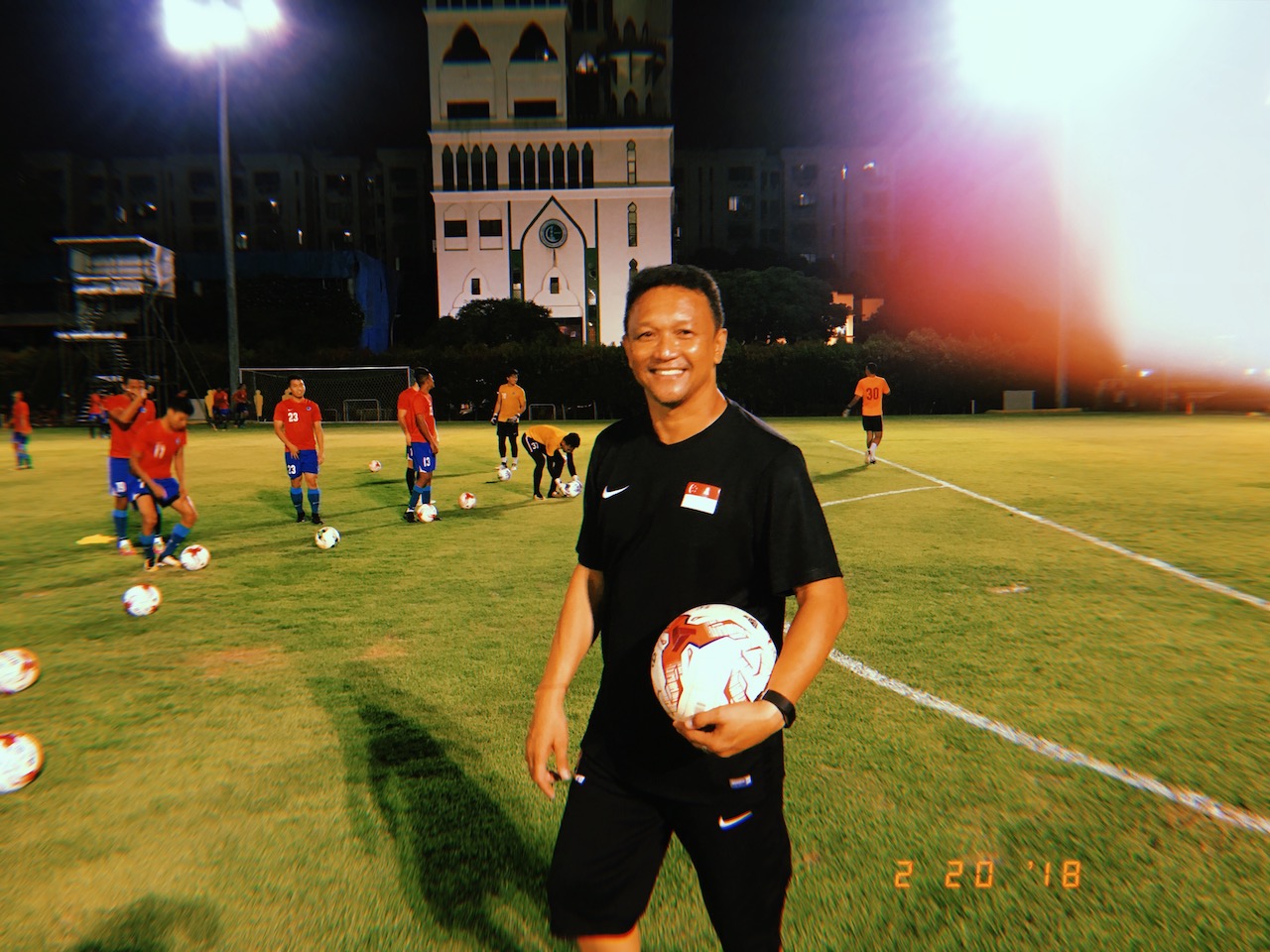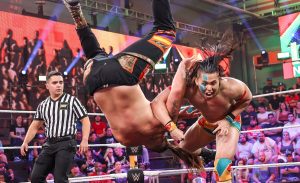There are many remarkable things about football legend, Fandi Ahmad.
Aunties would say his handsome albeit weathered face and cheeky smile is what’s most memorable. It turns them into giggly school girls whenever they bump into him on the streets. Naturally, most request for an autograph or photo.
The average Singaporean who has only heard stories of him, whether they understand or appreciate football, might be impressed with how his name alone is deeply revered by young and old, like the way one speaks of a childhood hero.
And hardcore fans would recall the stunning goal that he managed to score in the final minutes of a match against Inter Milan in 1983, when he was a striker with FC Groningen. Even though the ball would fall to his weaker foot, he would effortlessly send it straight into the back of the net, nothing short of magic.
But what’s truly notable is how ordinary the 55-year-old comes across in person.
15 minutes before we’re supposed to meet at his office at the Football Association of Singapore (FAS), Fandi calls to inform me that he will be late. He is very apologetic; he got dragged into another meeting but will call me once he’s done. We hang up and I feel like I’ve just arranged for a lunch appointment with an old friend, i.e. this all feels astoundingly normal.
Yet, Fandi is anything but.
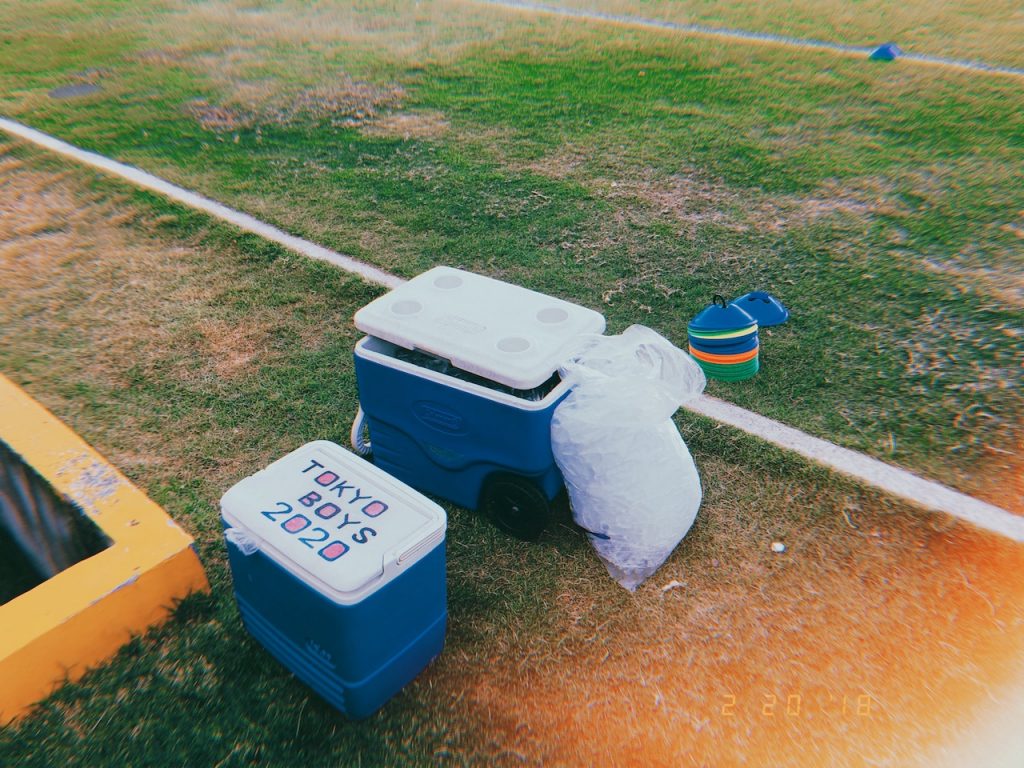
Under Fandi, our national team will probably be expected to land a place on the podium at the Asian Games this year and the SEA games in 2019, as well as qualify for the 2020 Tokyo Olympics—at the very least.
Yet going by how Fandi consistently strives to one-up himself, even in regular training sessions, this might not seem so impossible.
“I am self-critical. This thing not good, that thing not good. I always want to do better. Like I’m not really an IT person but I try to research on good programmes from coaches in the 70s or 80s to incorporate into my training,” he says.
Critics might argue, quite frankly, that Fandi has his work cut out for him. They believe our national team’s lack of medals is due to the subpar standard of our players.
While Fandi knows that his players have limitations, he also knows what to do with them, such as increase their fitness level and tactical skills. At the same time, he also believes that success is “less about the skill, always about the will”.
Accordingly, he insists that consistent support from fans is crucial under any circumstances, even though Singaporeans are “tired we never win”. He cites the time that the Argentinian football team visited our country to commemorate the FAS’ 125th anniversary as a typical example of support for local football.
“When Argentina came, we thought Singaporeans would wear the Singaporean flag. But people wore blue and white stripes, the other country’s flag. Why can’t Singaporeans support their own? They can’t just support me; they must support all the athletes. I was very sad. I couldn’t help wondering if we really have passion for the sport. Maybe we just don’t care.”
Then I bring up Iceland’s qualification for the World Cup last year. Not only did our small nation show support for their even smaller nation, it also resulted in criticism for our own national team for not meeting our Goal 2010, the original plan we had to qualify for the World Cup.
If there were a medal for cracking Fandi’s cool exterior, I would have won it then.
He says, “If Iceland were in Singapore, they would never make it. It’s not just the education system that hinders us, but also the environment and culture. They are in Europe, where everybody plays football to become a professional. They have these dreams from as young as eight years old. Here, when people push and they don’t make it, they give up. People like to compare us to Iceland, but it’s an unfair comparison.”
Understandably, he is also frequently frustrated by keyboard warriors, who have a tendency to degrade his players without attempting to empathise with the challenges they face.
“If you are always criticising or judging people, you will never love them,” he says.
Throughout our conversation, Fandi frequently drops these feel-good aphorisms, and I realise perhaps he wasn’t chosen to lead the Young Lions for his legacy, nor his natural discipline and talent. Instead, it’s because he is heartbreakingly idealistic, a coach who strives to see the good in everyone and every situation.
And perhaps only someone like him can save a sport that’s struggling to regain its morale against all odds.
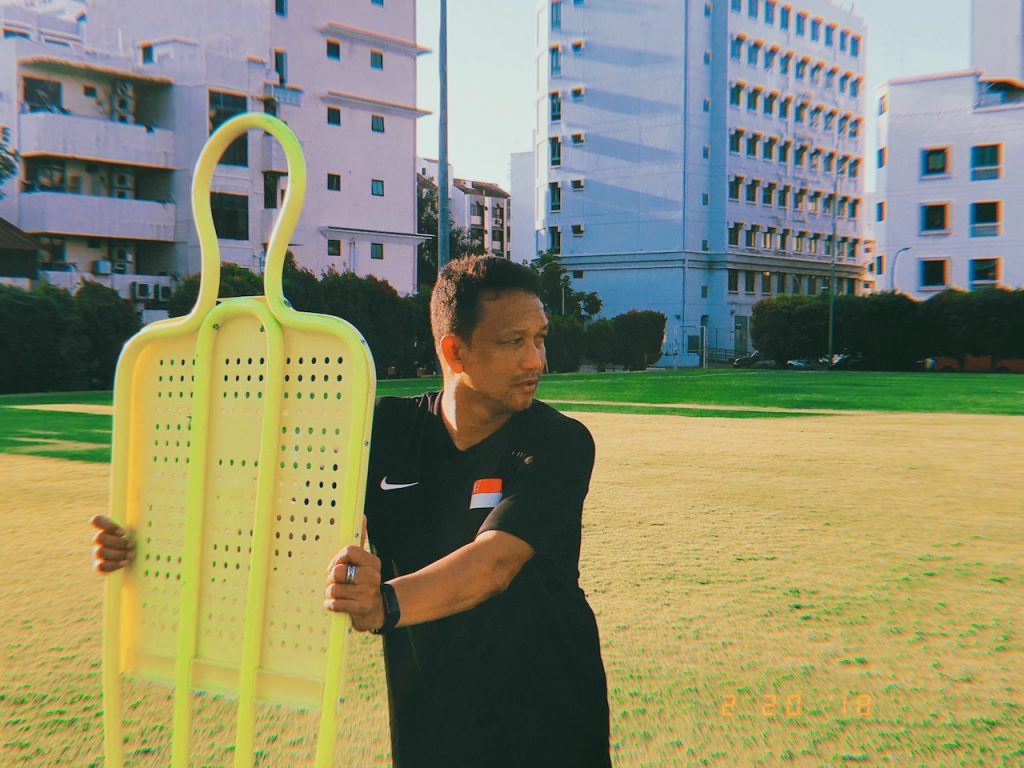
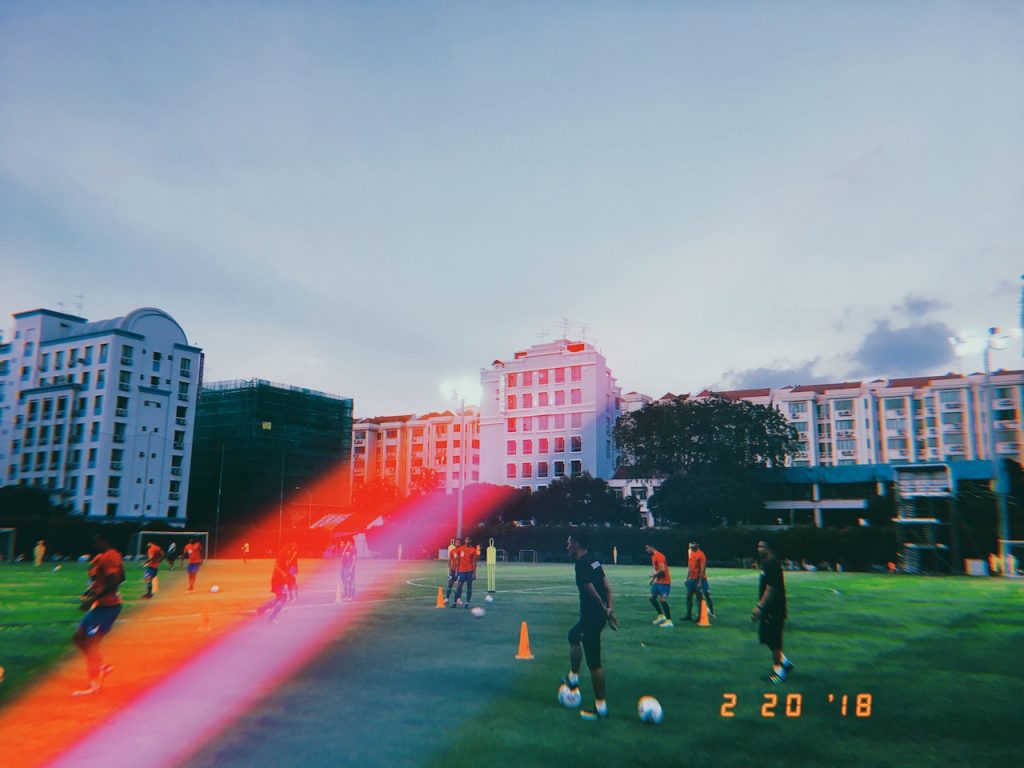
Even if all important factors come together, such as his coaching, his players’ discipline, and the support of fans, Fandi is still up against our “education and National Service (NS) system”.
These are the fundamental things he believes need to change.
Even when we’ve moved on to talk about other things, he finds a way to bring up the “system” again.
“Because of our education system, our boys have a lot of discipline. But how do we get them together for training four to five times per week, when they are students, have internships, or can’t book out from NS? People don’t want to know our struggles; they just want to see success. But success doesn’t merely take one or two years,” he says.
“Yes, we can hire better coaches, but they will also be at a loss. In any case, we’re trying to work something out with MINDEF, who has been very understanding.”
Fandi shares these frustrations at the Geylang ActiveSG field, where he invites me to observe a training session. This particular night, the team isn’t going hard, as they have a friendly match with a visiting Japanese university the next day.
Even though training starts around 7 PM, Fandi starts to set up the field at 6 PM with another colleague from FAS.
“You can write about this,” he says, gesturing to the players who stroll in in batches as the time for training draws near.
“Some days we cannot wait for all of them to show up. The problem is not their lack of discipline or passion; it’s the system. They start school at 9 AM and reach home at 11 PM. Those who are ‘stronger’ will tell me they’ll try to make it to training, but you honestly don’t know who will show up in the end.”
He also laments that sports in Singapore are still considered co-curricular activities, instead of something that’s inbuilt into the mainstream school curriculum.
That said, there is probably nobody more qualified to fulfil our football dreams. After all, Fandi has scored “300 over goals in 600 over matches” as a professional footballer, won three silver medals in the Southeast Asian Games, and became the first Singaporean footballer to play in Europe.
These accomplishments take more than sheer talent. They also demand a shocking amount of grit, focus, self-discipline, determination, and ambition—all of which he possesses, and then some.
Every athlete dead set on succeeding owns a gripping madness that drives them to a feverish obsession with their sport. At his core, Fandi is just a man who stubbornly insists on bringing back glory to his sport and helping Singaporeans take football seriously again.
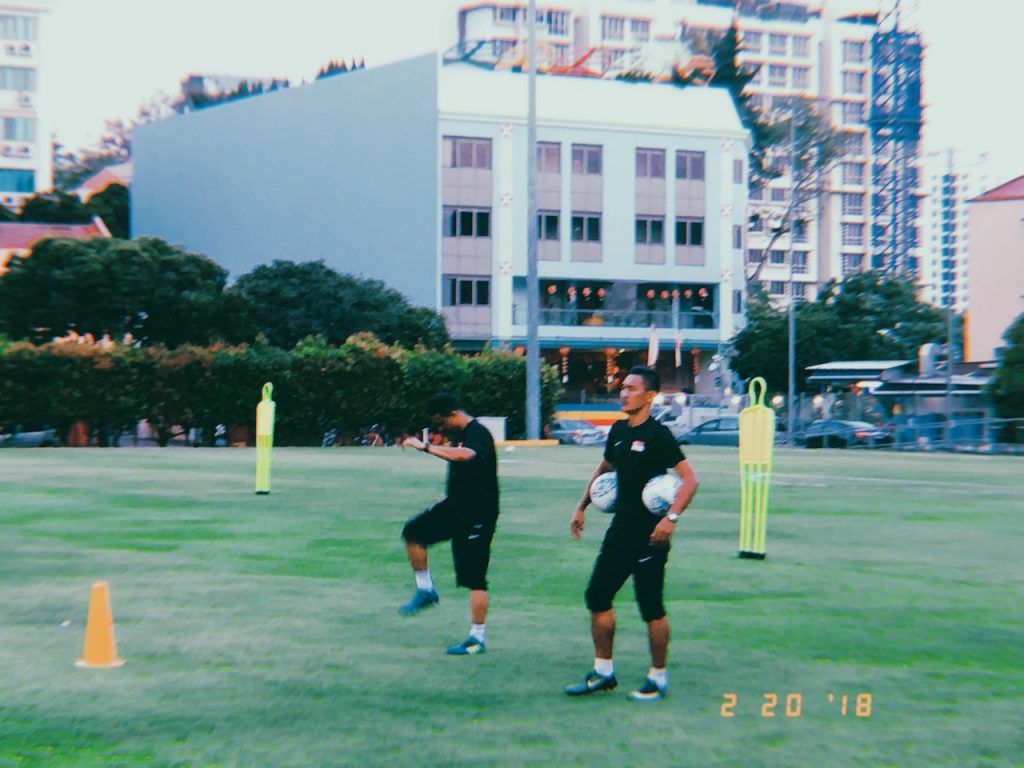
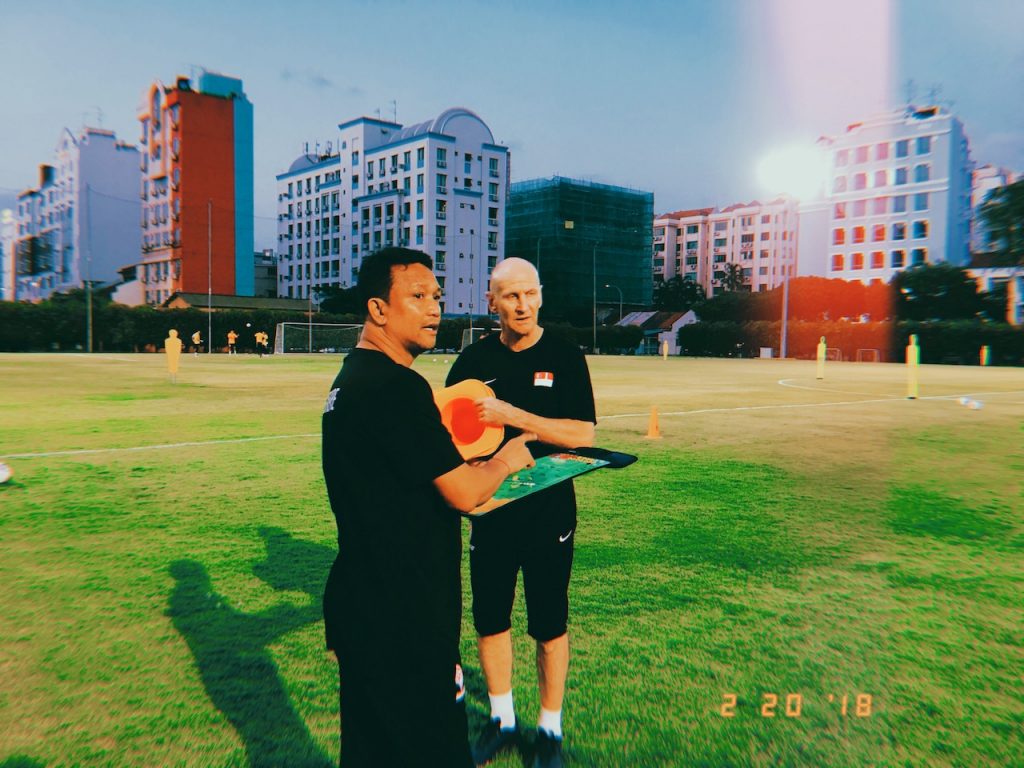
“I will shout at them, but they know it’s not personal. Some new players are not used to it. Some cannot tahan, go back sleep, don’t want to play already. I remember I used to get vulgarities from coaches during my time, but I know times are changing, so I also try to improve how I manage the team,” he says.
He’s right about the shouting though. When I observe Fandi in training, his voice can be heard from the other end of the field loud and clear, as he barks out orders and instructions. Go! Defend! EH BODOH LAH.
But it’s obvious from his players’ laughter that Fandi isn’t angry, just a coach who keeps it real with his boys and wants them to fulfil their potential.
In fact, he admits he is usually patient, only “exploding” once every 10 days. His tolerance level in general is also “very high”, that he would still play a game with a fracture.
Evidently, his strict discipline as a coach is simply a reflection of his personal standards for himself. This laser-sharp focus has always been part of who he is. For example, when he was in school, Fandi used to sleep at 10 PM daily so he could work out early in the morning. He would also request to leave school an hour earlier to attend training. On the social front, even though Fandi would start getting invited to more parties as his popularity grew, he would never smoke or drink.
In another instance, he shares that his focus and preparation before every match are crucial to his mental strength during the game.
“I won’t talk to anyone on the way there. Most of the time I’m visualising the field and studying my opponent in my head. I’m always thinking two to three steps ahead,” he says.
“Then when I get to the stadium, I know my job: help the team create space, score goals, and entertain people. Just give me a few minutes—even a few seconds—and I know I can make something happen.”
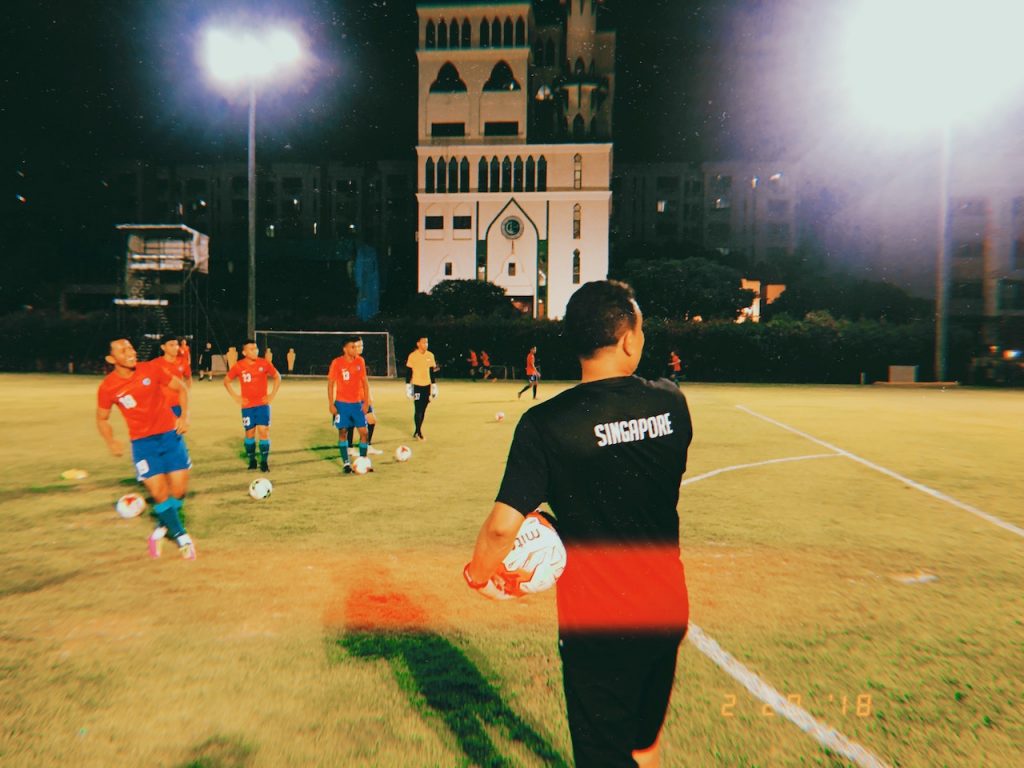
Earlier in the day, I notice three posters of the S-League on Fandi’s office wall: one was from 1994, the other two were from the last two to three years. When I point out that the older team had more Chinese players, Fandi responds candidly, as though he has been waiting for me to ask this question all along.
“Sometimes people think we don’t take Chinese players and that we are racist. It’s not true, we welcome them. But they don’t want to sacrifice because the money is too little. If they’re good, once they make the national team, they ‘disappear’. They’re not committed; they just want to study [for better career prospects],” he says.
As a result, his team is “monopolised by Malays”, although Fandi says that even they are becoming harder to recruit. He “can’t even pinpoint 50 good players” today, whereas he claims it was easier to convince people to play for Singapore during his time. Back then, it was apparently a privilege to serve the country through football.
Despite the seemingly dismal reality, he keeps his spirits up, joking that players do have certain strengths based on their race. He’s observed that “Chinese players can be more disciplined, while Malays might be more talented” because “there’s too much creativity in their mind”.
The stereotype of being a ‘model minority’ doesn’t escape him—or at least the public doesn’t let him forget it. To us, Fandi is more than just a successful sportsman, he’s also a prime example of success to the Malay community.
Yet as much as being Malay forms a significant part of his identity, his appeal has undoubtedly transcended race. When he plays abroad, he informs me that he’s mostly regarded as a Singaporean player, instead of a Malay one.
“Up till today, I’m passionate about playing for Singapore. Even if my team always loses, I still feel proud. I will always come back to Singapore no matter how many places I’ve been,” he says.
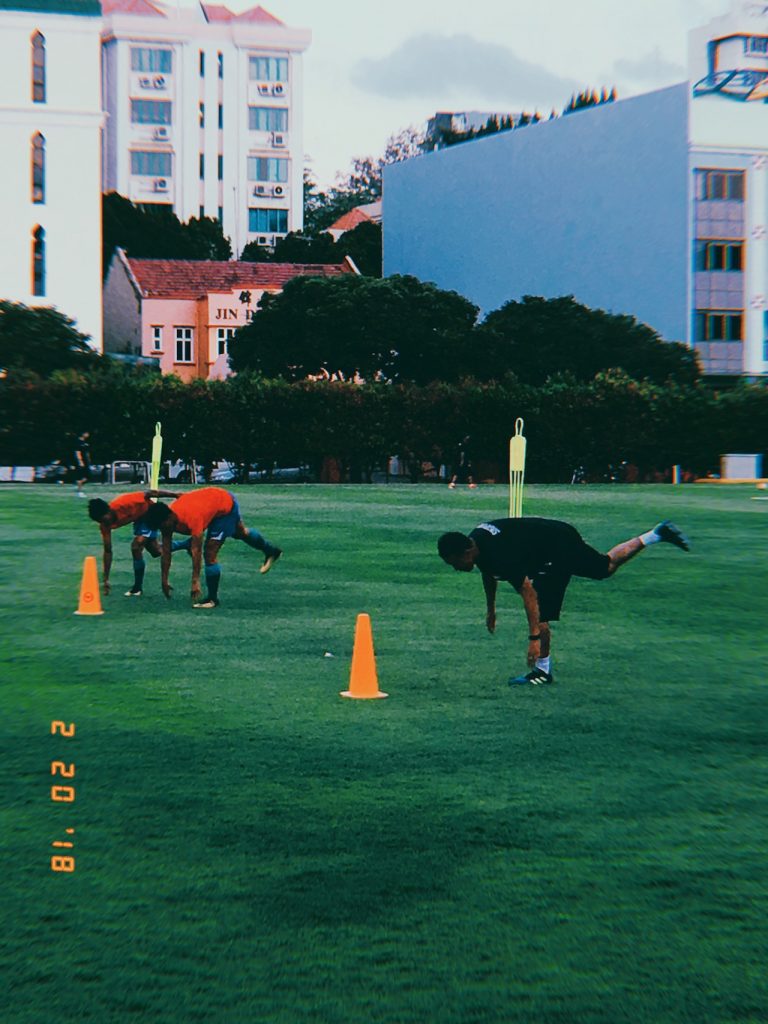
Like most fathers, he shows his children love the best way he knows how: by forking out for a good education so they can pursue their dreams.
Towards the end of last year, his third son, Ilhan, moved to York, UK, to study at Queen Ethelburga’s College and train at the i2i Football Academy. Only 15 this year, Ilhan apparently knows what he wants to do with his life, much like Fandi when he was younger.
In this regard at least, Fandi says that Ilhan is the child who’s most similar to him.
“He also has a very strong mentality. He wants to fight against himself, and he’s always instructing bigger boys on the pitch. During the year before he went overseas, he would also come for my trainings. I think he should be better than me in years to come.”
Any pressure on his children to uphold the Fandi Ahmad and Wendy Jacobs family name can only be a good thing, Fandi believes. This ‘fame’ trains his children to be more disciplined and more aware of their actions in public.
At the same time, I wonder if Fandi himself remembers a time before he was recognised anywhere he went. When his popularity first skyrocketed, he remembers feeling bad for his teammates that the media only wanted to interview him after a match.
Having grown up in the public eye, however, acceding to fan requests for autographs and photos has long been the norm for him. Yet Fandi never sees this as a chore. When he was younger, he made up his mind not to ignore fans after he was rejected by Diego Maradona himself when he asked for a signature.
Fandi says, “That incident had such a big impact. I promised myself that if I made it one day, I wouldn’t turn anybody down. People adore you because you make them happy, you motivate and inspire them. Attending to their requests is a small but positive way to help.”
For the umpteenth time since we’ve met, I find myself amazed at how earnest Fandi seems. According to him, his willingness to trust others is also his weakness.
“When I trust people, I’d get to see them through the days, weeks, and years. Then I know how they really are. That’s where sometimes I learn the hard way. But this is my nature and I cannot avoid it. I’ve tried to change, but it doesn’t make me happy. I want to be free.”
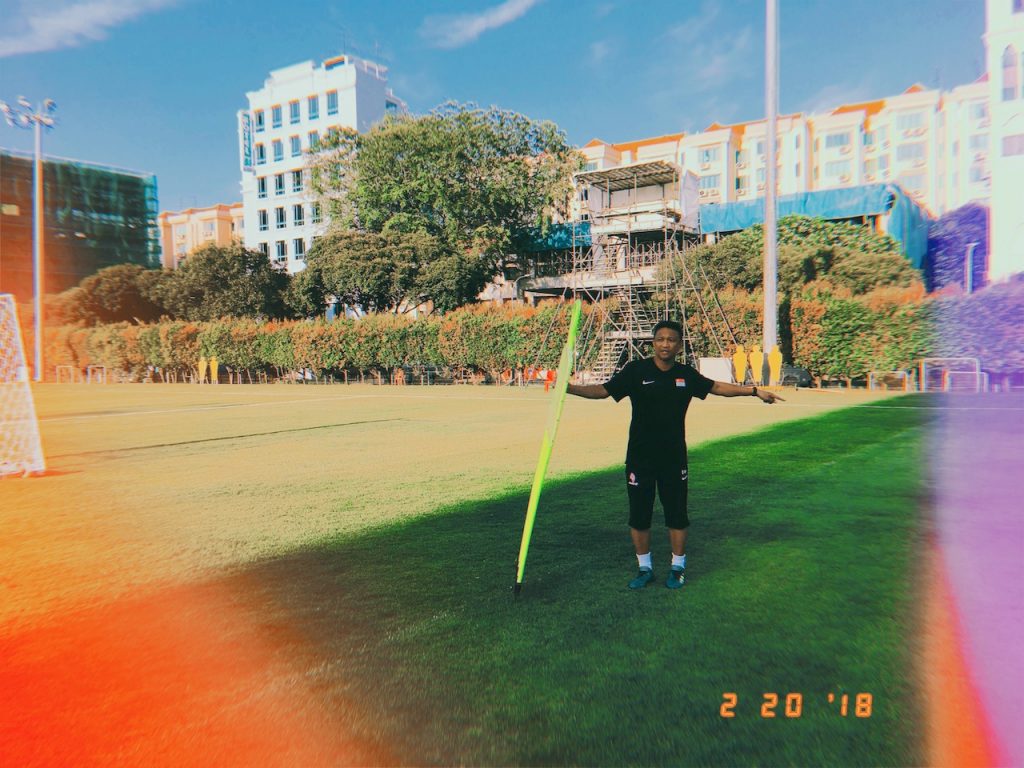
Football is Fandi, and vice versa. The kampong kid who became a national superstar is a narrative that Singaporeans know by heart, and Fandi sticks to it. Decades of being in the spotlight have turned his personal passion into an embodiment of a country’s larger values and beliefs.
And in spite of his numerous professional achievements, he never once comes across as intimidating or entitled. I never feel inadequate about my pathetic knowledge of his sport.
Yet no matter how heavy the burden of achieving Singapore’s football dreams, it might be nothing compared to the suffocating duty Fandi feels towards doing justice to his own legacy.
Deep down, he knows this: legends aren’t born. They’re made—by ordinary people expecting other fallible humans to live up to impossible ideals. When this happens, legends are no longer sportsman, musician, or actor, allowed to live their lives as they wish.
On a pedestal, there is no room for failure.

